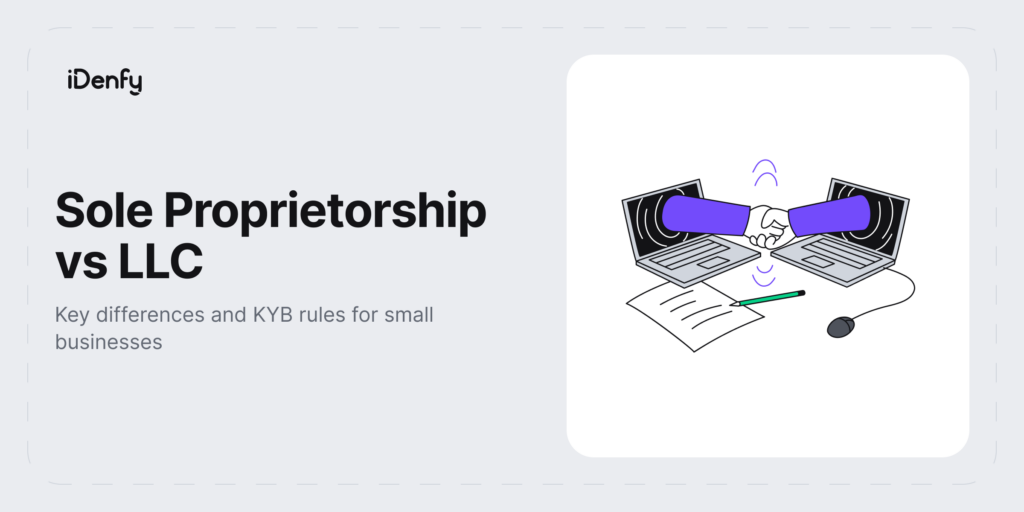Over the past few years, money laundering has turned into a disaster for firms and institutions associated with the financial sector. As a result, governments have been actively looking for innovative ways to fight against money launderers. They are putting various policies in place to prevent money laundering called anti-money laundering policies.
We’re taking a closer look into these laws and regulations that help companies prevent fraud down below.
The Definition of Anti-Money Laundering
Anti-Money Laundering, or AML, is a term used across the globe for a set of laws and regulations designed to stop criminals from disguising illicitly acquired funds as lawful profits. AML consists of policies, laws, and regulations designed for companies around the world to protect themselves against financial crimes better.
As per AML law, financial institutes such as banks, investment firms and real estate are required to monitor their customers proactively to prevent any possible money laundering and corruption. Regulators enforce these rules, leading companies to establish compliance departments and invest in software solutions despite the complexity.
Initiatives for anti-money laundering compliance were first observed in the year 1989 when numerous organizations across the world formed FATF (Financial Action Task Force). The primary aim of this task force is to establish universal standards for combating money laundering and encouraging the application of those standards within organizations.
The FATF advises financial and legal agencies to conduct KYC (Know Your Customer) or ID verification of clients by requesting their identity proof.
History of AML
The Bank Secrecy Act (BSA), started in the US in 1970, was an important law to stop money laundering. It’s been updated over time and is now managed by FinCEN. Fast forward to 1989, the FATF began working on global standards to fight money laundering. After 9/11, it also focused on stopping terrorism financing.
A major milestone in the history of anti-money laundering in the USA occurred on January 1, 2021, with the passing of the 2020 AML Act (AMLA). In the meantime, the EU started anti-money laundering rules in 1990, aiming to stop financial systems from being misused. Additionally, in the UK, the Proceeds of Crime Act 2002 enforces anti-money laundering laws.
Related: What are the Key AML Laws in the US?
Industries Affected by AML
By now, you must have understood that firms that come under the financial sector, such as banks, payment processing companies, and insurance firms need to comply with AML regulations. To put it simply, financial institutions mandated by AML legislation must report suspicious activities to authorities and face elevated money laundering risks due to extending credit to consumers.
However, there are some other companies that need to follow AML regulations as well.
These include:
- Law firms
- Real estate brokers
- Tax advisors
- Casino and iGaming platforms
- Virtual currency exchanges
- Loan companies
- Fintech service providers
- Cryptocurrency platforms
As an obliged entity, you must identify and verify your customer’s identity, as well as identify and, if needed, verify the identity of their beneficial owner. That means all the companies need to employ e-KYC or electronic identity verification to validate their customers remotely. This verification can be done via both selfie-based, or video-based ID verification.
Effects of Money Laundering
Worldwide, a lot of people strive to launder money to manipulate financial systems and gain an illegal benefit. Such unlawful acts are not only a threat to the financial stability of a country but also give birth to various social and security-related issues. Money laundering plays a significant role in powering corrupt public officials, terrorists, and arms dealers.
Below, we analyze the negative effects of money laundering based on different factors:
1. Economy
Money launderers make companies less productive, which leads to a lower level of tax revenue for the country. Imagine even if 25% of companies in a country are involved in money laundering acts, how much negative impact it will make on the overall tax revenue of the country.
In addition to this, businesses involved in laundering have an unfair business advantage. Such businesses can afford to sell their products at a lower price, which is the biggest threat to the existence of small-scale businesses. Small companies lose customers as they can’t compete this way.
2. Society
If money laundering acts are not coped successfully, it may have political and social consequences as well. Money launderers can infiltrate and take control of prominent financial institutions of the country by making investments and offering bribes to public officials.
Thus governments and legal authorities will have to spend more funds on law enforcement and AML regulations that will reduce public spending.
What Does AML Do in Practice?
Anti-money laundering laws and regulations are intended to keep an eye on illicit activities that include trading in illegal goods, misuse of public funds, tax dodging, and market manipulation.
Criminals often try to “launder” the money they earn via unlawful acts such as drug trafficking. One of the primary techniques they use to disguise their illegal cash is they run their money through a legitimate business. Consequently, every company is advised to detect and prevent illicit transactions.
While anti-money laundering laws are applicable to certain types of payment transactions and criminal behaviors, it should be practiced in every financial firm to detect and prevent illicit activities.
Companies associated with the financial sector must verify the identity of their customers and monitor their transactions. They are not just accountable for monitoring transactions but also report suspicious activities such as a sudden increase in funds or withdrawal to the authorities. This entire process is the part of KYC compliance.
All the financial institutes like banks, payment processing companies, and insurance companies need to comply with KYC guidelines to prevent their businesses from being used by criminals for money laundering activities.
The KYC process usually involves identifying and verifying the identity of customers via trustworthy sources of data, documents, or information. To comply with KYC, a customer may need to provide proof of address, recent photographs, and a valid identity document.
Automation and AML Software
Undoubtedly, complying with AML is important for all businesses. However, not every company has a budget for the implication of the AML setup. According to a report from the Financial Times, corporates and prominent financial institutes spend millions every year to prevent money laundering, which is not possible for startups and small-scale businesses.
So what’s the solution? Well, such businesses can invest in advanced AML automation solutions that can improve their AML defense mechanism without breaking their banks.
Fortunately, there are some AML software options out there that not just simplify the complicated AML compliance process but also are pocket-friendly.
For those who don’t know, AML software is a computer program that lets businesses analyze consumer records, and identify fraudulent transactions. This program filters customer data and categorizes it as per the level of suspicion.
So, if you are in a business that needs you to comply with AML regulations, you can invest in pocket-friendly AML software that protects your business from financial crimes. Don’t forget that financial crimes are changing with the change in technology. Therefore, a reliable AML defense system is needed for every business.
We at iDenfy provides a wide range of identity verification solutions such as face recognition, liveness detection, identity document check, anti-money laundering check and more.
Try our free demo for a more robust approach to your AML program.
This blog post was updated on the 26th of March, 2024, to reflect the latest insights.




